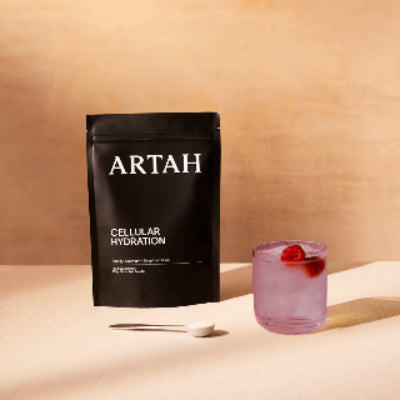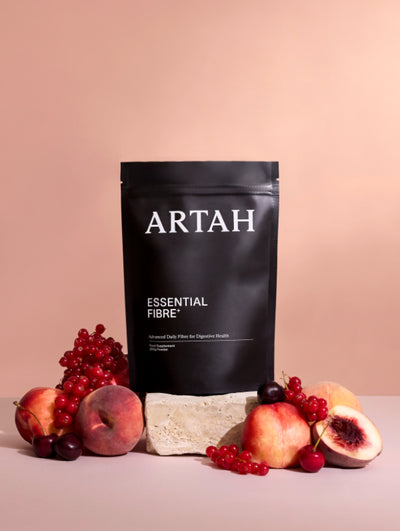We all know that our weight is influenced by many factors, from what we eat and how we sleep, to our hormonal landscape and fitness regime.
But have you been doing it all right and still can’t seem to progress the way you feel you should? The key could be in your gut. Here’s what we know so far.5 WAYS YOUR MICROBIOME INFLUENCES YOUR WEIGHT.
— It influences fat storage.
When the diversity of our microbiome suffers, we can lose the vital balance between beneficial and pathogenic bacteria. When pathogenic bacteria are in charge, they contribute to inflammation and insulin resistance, both of which can sabotage your weight loss efforts. How do they do this? One of the main ways is through the production of inflammatory compounds called LPS – or Lipopolysaccharides. LPS can alter the integrity of the intestinal wall making it more permeable, meaning that it and other metabolites can leak into the bloodstream that shouldn’t usually be there. This has been shown to contribute to insulin resistance, making us more prone to fat storage and less metabolically flexible.
— It can increase appetite.
Hunger and cravings are not just about willpower – in fact, our hormones and chemical messengers will have a far greater effect on how and what we eat than the strength of our resolve. There are a variety of factors implicated in appetite control, and the microbiome is unsurprisingly one of them. A loss of bacterial diversity is associated with a depletion of Leptin, one of the key appetite regulating hormones involved in the satiety response. The metabolites of certain pathogenic strains of bacteria also play a role – they can stimulate Ghrelin, our hunger hormone, and influence the type of foods we crave.
— But it also helps control appetite.
It’s not all bad news. Good bacteria in the gut have diametrically opposite effects through the production of postbiotics – bioactive compounds produced when our bacteria break down fibers, resistant starch and other health promoting compounds. One of the most important groups of postbiotics is the short chain fatty acids (SCFA), which are both a source of energy for the cells of the gut, and chemical messengers that help improve energy and metabolism. Not only do they help regulate fat storage, but they also influence appetite. SCFA can regulate blood sugar, suppress appetite, and improve the intestinal barrier.
— It governs serotonin production.
You’ve probably heard it before – the gut is a powerhouse when it comes to manufacturing serotonin. But how does that affect our weight? Serotonin helps curb cravings and acts as a natural appetite suppressant. It also plays a role in gut motility, which is essential for healthy digestion and bowel function. A lack of serotonin can reduce peristalsis, slowing the movement of the contents of our bowel. Over time this can lead to both constipation and SIBO, an overgrowth of bacteria in the small intestines, which can further contribute to weight gain. It also affects us through the quality of our mood. Serotonin is essential for mood regulation, and keeps us feeling happy, calm and balanced. Whilst this isn’t direct correlation to weight, we’re generally more prone to emotional eating, going for comfort foods and are more susceptible to cravings when we’re feeling anxious and moody.
— It's super sensitive to stress.
The communication along gut-brain axis is bidirectional. Stress affects the composition and expression of our microbiome, and in turn, it influences our stress response and mood via its metabolites. In fact, pathogenic bacteria can hijack the vagus nerve – preventing us from switching into our parasympathetic nervous system. Cue increased hunger, perpetuated feelings of stress and poor sleep.
6 THINGS YOU CAN DO ABOUT IT.
The good news is that food choices and stress management are by far the most impactful factors when it comes to improving your gut health. Here are some quick ways to take action.— Focus on diversity. A thriving population of beneficial bacteria is key to keeping our metabolism in check, and one of the best ways to do this is by keeping your plant diversity high (think 40+ foods per week). Check out our blog last week for a refresher on the importance of plant diversity.
— Use functional foods. Polyphenols are the unsung heroes of gut health. They nourish some of the most beneficial bacterial strains, so pumping these up in your diet will help your microbiome thrive. Think organic green tea, pomegranate, cranberry, and dark coloured fruit + veg.
— Increase your fiber. Short chain fatty acid production requires prebiotics and lot of fiber. If you increase your fiber and notice discomfort, it means you need to be a little more gradual in your approach. It usually means your gut bacteria are out of balance; individuals with a more diverse microbiome can handle more fiber. It can take time to adapt so start slowly and see how your body adjusts.
— If you needed another reason to get serious about stress management, this is it. Ensuring that your stress doesn’t get out of control is one of the most impactful things you can do for not only your weight, but your overall health. If you need support, Enhanced Nootropics helps regulate mood and neurotransmitter production, and includes 5 HTP – a surefire way to help support serotonin production.
— Try comprehensive gut support. G.I. Fix has prebiotics, probiotics and plant polyphenols all in one to help reduce inflammation and nourish beneficial bacteria for better balance.
— Give yourself some digestive rest. It’s hard to calm the gut amidst constant stress, eating out, premade meals and socializing. If you need a quick break to really focus, try the 5-Day Cleanse, a programme that will help you reduce digestive inflammation, restore metabolism and improve gut health.











































 SHOP.
SHOP.






